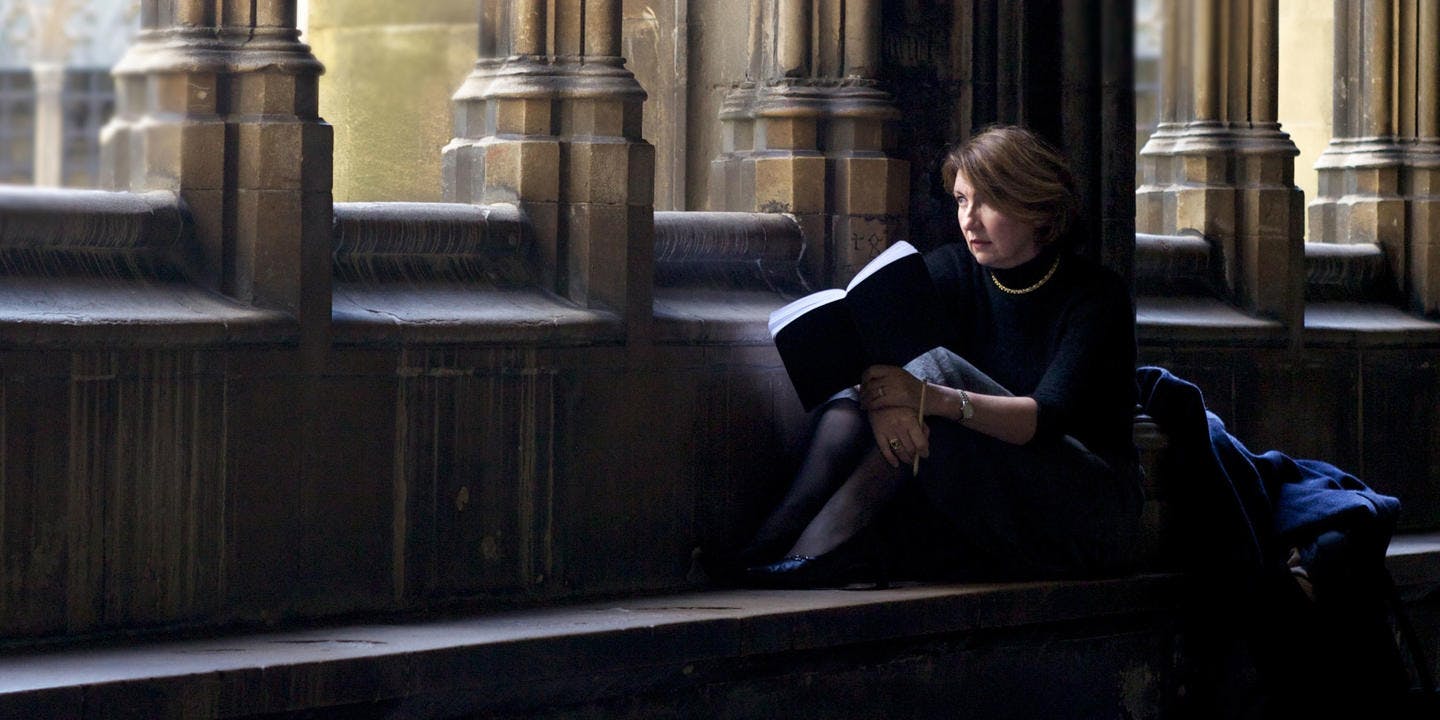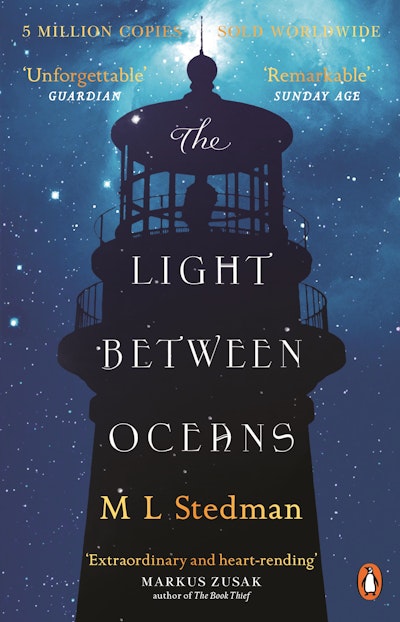Your questions about her incredible novel, The Light Between Oceans, answered.
Firstly, congratulations on the huge local and international success of your debut novel, The Light Between Oceans. Can you start us off by telling us a bit about the book, in particular how the seed of this captivating story began for you?
Thank you! The story emerged out of nowhere, as my stories usually do. I just let a picture or phrase or voice come into my mind, and follow where it leads. When I sat down to write one day, I closed my eyes and saw a lighthouse, then gradually a woman, and I knew it was a long time ago, on an island off Western Australia. Then a man appeared – the lightkeeper. As I wrote, a boat washed up, with a dead body and a crying baby, so I had to keep writing to see what happened, and find out who these people were. For me, what was really extraordinary as I looked back on it was that all the major themes in the book – war, right and wrong, isolation, light and dark, the nature of family, the kindness of strangers – were right there in that opening scene, though I had no idea at the time.
In The Light Between Oceans, Tom and Isabel are grappling with a major moral dilemma, and they each come at it from differing moral compass points. However, the narration doesn’t cast judgement and the reader is left to make up their own mind about what they see as right and wrong. Did you ever find it a challenge to stick to a character’s truth, even when you may not necessarily agree with their behaviours/actions?
It was definitely easier for me to see things from the point of view of some characters than others, but that’s what made the challenge so enjoyable. It was a great exercise in empathy and compassion. And I wanted to invite readers to explore the situation in complete freedom, really weighing it up, examining their own views and how they reached them. I love the fact that readers come to widely different conclusions. I think they can do that because there’s little judgment in the text itself.
The title of the book references the point on the coast of Western Australia where the Great Southern Ocean and the Indian Ocean meet – a treacherous and isolated section of water. Can you tell us a little bit about what this represents to you and to the characters in the book?
The theme of duality runs right through the book, and location is a physical manifestation of that duality. It reminds the reader that there’s always more than one way of looking at things: without giving away too much about the plot, there are two aspects to the baby’s story, and two locations – Janus Rock and Point Partageuse. The two oceans have (or perhaps are) very different characters – the Great Southern Ocean is icy, fierce and treacherous, and the Indian Ocean is warm and calm in comparison. This duality is echoed, too, in the island named after Janus, a Roman god who has two faces looking out in opposite directions. He stands for beginnings and transitions, so his image was often found on doorways and thresholds (the state of ‘between’ alluded to in the title). The doors of his temple in the Roman Forum were open in times of war and closed in times of peace: Tom retreats from war to find peace in solitude, but is confronted with conflict on a deeper, more intimate scale.
As for the isolation – I found it was a useful way of ‘pulling focus’, to use a film metaphor. When the characters are isolated from the rest of the world all distractions fall away, and there is nothing to do but concentrate on the dilemma – that goes for the characters and the readers – and it gives the book extra intensity.
Imagery of a scorpion is prominent in the book, both in a memorable scene with Lucy and Tom in Chapter 22 and repeated on the book cover. Can you tell us about why you chose this particular arachnid for that scene and what it may represent for Lucy and for Tom, who eventually kills it?
Again, like the lighthouse, it just turned up. It’s literally the ‘sting in the tail/tale’, and a useful metaphor for the vulnerability of choices born of innocence and ignorance. Isabel sees her choice as innocent and for the best, knowing nothing of the baby’s history, but later in the book we discover its devastating consequences. Lucy sees the scorpion as just a fascinating, beautiful creature; she’s blissfully ignorant of its poisonous nature. In the case of Tom, I don’t want to spoil the plot, so I’ll just say that readers may draw parallels between the scorpion scene and his response to the overall dilemma. As for putting it on the cover, that was actually the inspiration of Claire Ward, the wonderful Art Director at Transworld/Random House: I confess I hadn’t really focused on it. That said, I think it’s a very compact symbol of danger dwelling in beauty.
The Light Between Oceans has an extraordinary universal appeal, and has become a bestseller in many territories. Do you think the theme of morality is a major player in its ability to transcend borders? If not, what are your thoughts on its worldwide appeal?
I was absolutely taken aback at its international success. If I have to find a reason for it, perhaps it’s that the core subjects – right and wrong, love and duty, family and community – cross cultural boundaries. I wonder if they do so with more than average ease because the book offers no answers: it leaves the reader with the questions, so there’s a lot of work for them to do both while they’re reading and once they’ve finished.
In a past life you were a practicing lawyer, and this seems to be a road well-trodden by other esteemed authors such as John Grisham, Henry Fielding and Georgia Blain. Do you have any thoughts or suggestions on why this might be so, or where the correlation may lie?
Writers and lawyers share many attributes, including a facility with language, a natural curiosity, and an ability to marshal facts clearly and persuasively. I believe that to be a good lawyer, you have to be able to see other people’s points of view, so it’s a natural training in looking at the world through other people’s eyes, whether they’re your client or, in a novel, your character.
What authors inspired you to write?
I’m not sure any authors inspired me to write, but many inspired me to read. It’s impossible to list all my favourite writers here, but a few from formative years and in no particular order are: Greene, Dickens, Fitzgerald, Gide, Wharton, Tolstoy, Wodehouse . . .













